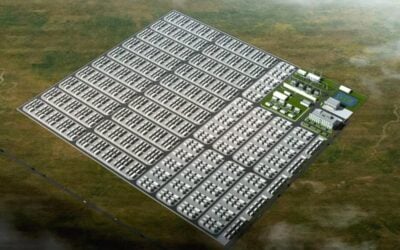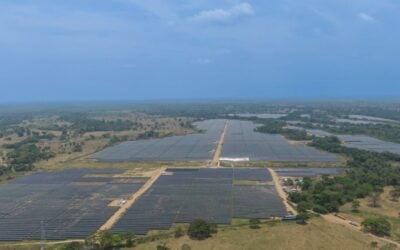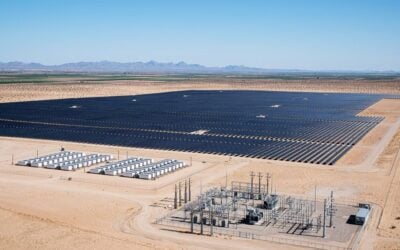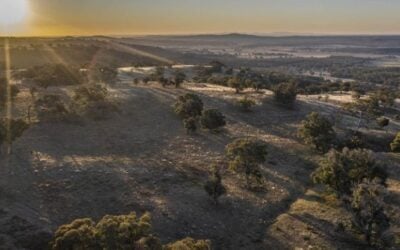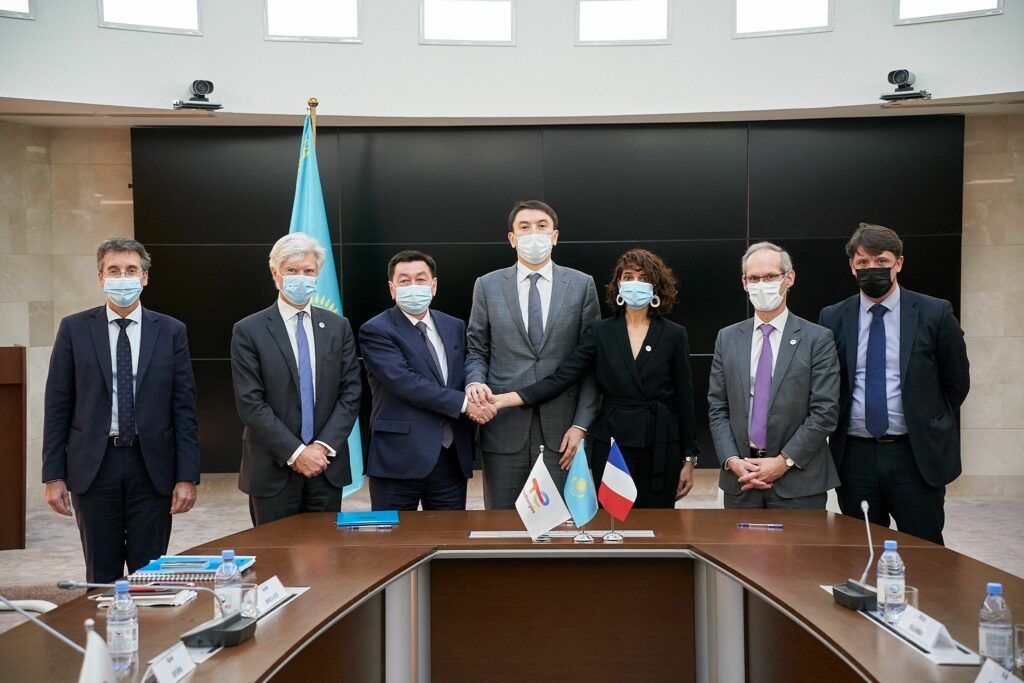
Statkraft has been awarded a tender of public lands in Chile to host a wind power project and Total Eren is developing a 1GW wind power project in Kazakhstan: both would be paired with large-scale battery energy storage systems (BESS) of up to 1GWh capacity each.
Statkraft Chile said last week that it has won the tender hosted by the Chilean government Ministry of National Assets. It has been granted a license to use public lands on which to develop, build and operate a 400MW wind-plus-storage facility in Taltal, in Chile’s Antofagasta region.
Enjoy 12 months of exclusive analysis
- Regular insight and analysis of the industry’s biggest developments
- In-depth interviews with the industry’s leading figures
- Annual digital subscription to the PV Tech Power journal
- Discounts on Solar Media’s portfolio of events, in-person and virtual
It will be connected to the national grid via a substation 15km from the site and would join the Norwegian company’s fleet of renewable energy assets in Chile: a 100MW wind farm under construction, a 600MW solar PV plant undergoing environmental assessments and just over 100MW of hydropower already in operation.
The project will require around US$500 million investment and will be sited on a 2,610 hectare plot of land. While the tender requires that the facility go into operation before 2030, Statkraft said in a press release it expects that it will be able to do so “several years before this deadline” .
A Statkraft spokesperson told Energy-Storage.news the company is considering building a 1,000MWh energy storage system with five hours duration at the site, which “would be enough to secure energy during the end of the day once the wind stops blowing”.
The BESS will “probably” be charged with energy coming from the wind farm — specifically during daytime hours when spot prices are significantly lower in Chile due to high solar generation on the grid compared to the night time.
“However, it is possible that we could add a solar PV [plant] for that purpose [of charging the BESS],” the spokesperson said.
Stakraft expects that it will use lithium-ion battery technology, but is also going to review the final technology once the project is defined. The company has ample time to await technology development and still meet the deadline comfortably, according to the spokesperson.
Due to the intermittent — or variable — nature of wind and solar generation, energy storage is the “perfect match” to help provide energy to clients 24/7, the spokesperson said, adding that Statkraft is developing four solar PV projects in Chile that will include BESS in their design.
One of those is Pauna, the 600MW solar PV plant mentioned above. The Pauna project will have a BESS that would support more than four to five hours of storage of energy, “injecting several megawatt-hours into the night”.
Latin America’s biggest battery system project so far is currently underway in Chile through AES Corporation’s local subsidiary AES Gener. A groundbreaking ceremony was held for the start of construction of the 112MW / 560MWh BESS in October 2020. Other notable battery storage developments in the country include the award of rights to develop two hybrid renewables-plus-storage projects with a combined generation capacity of 1.5GW to Engie Chile in July this year.
Saft to supply 500MW to 1GWh battery system for Kazakhstan project
Total Eren has signed a Memorandum of Understanding (MoU) with the Ministry of Energy and other government entities in Kazakhstan for a 1GW wind power project combined with between 500MW and 1GWh of battery energy storage.
The independent power producer (IPP) subsidiary of French multinational TotalEnergies said yesterday that the MoU has been signed with the energy ministry, National Wealth Fund and a state energy supplier to work together on developing, financing, constructing and operating the hybrid project.
Total Eren also said that battery storage company Saft, also a TotalEnergies subsidiary, would provide the project’s BESS. The renewable energy facility would be located in central Kazakhstan and Total Eren said it is the largest renewable energy-plus-storage project ever initiated by a private renewable energy IPP in the central Asian country.
The project would have an expected operational lifetime of 30 years. Total Eren is already present in the country, having deployed two solar PV plants totalling 128MW of capacity, which went online in 2019.
Kazakhstan is targeting carbon neutrality by 2060 and increasing renewable energy’s share of the national energy mix to 15% by 2030. The country is a major producer of oil, coal and natural gas and the national energy mix is largely representative of this. While the International Energy Agency said in 2018 that renewables only accounted for 1.4% of the energy mix and 10.4% of electricity generation — mostly from hydropower — there has been a fairly rapid increase in wind and solar since then.

